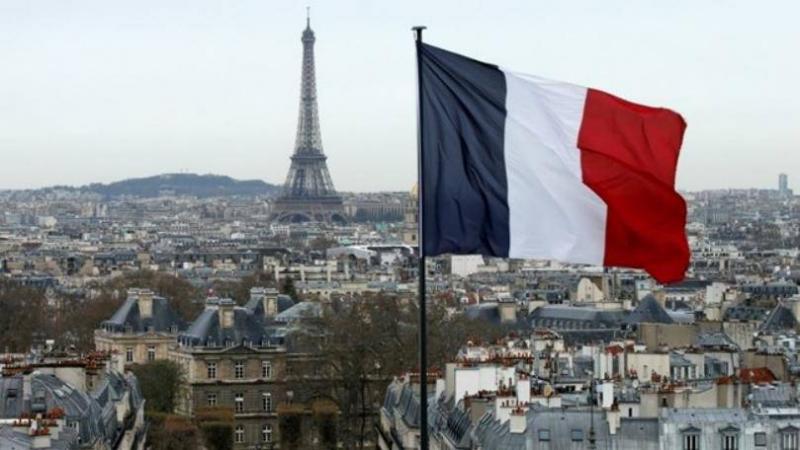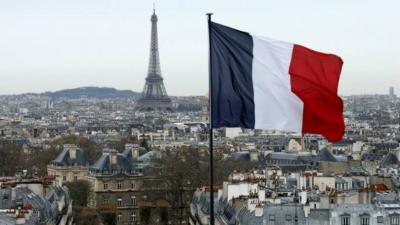Two weeks after the "Paris Meeting," which brought together experts on the Lebanese file from senior officials in the foreign ministries of the United States, France, Saudi Arabia, Qatar, and Egypt, the debate continues in political and diplomatic circles. There are those who wish to explore common factors that could lead to some form of coordination between the Lebanese interior and the outside world to facilitate the initial steps towards mapping out a road to recovery and salvation amid the complexities dominating the Lebanese arena. Some claim that the keys to the solution in Lebanon are external, while others await regional and international breakthroughs that could ease the path to possible solutions.
It is not accurate, as confirmed by the circles of the "five ambassadors" to "Al-Markazia” and many foreign diplomats, to suggest that the entire issue lies outside the country. If that were logical, the Lebanese situation would have exploded given the level of regional and international tension. Thus, the Lebanese must engage in the recovery process using Lebanese political, constitutional, administrative, and financial mechanisms, over which no external party has control. These are necessary steps to reach a stage where they can request international assistance in undertaking some recovery actions, whether through financial or political support.
On this basis, expectations were built around the "Paris Meeting," which the French diplomacy developed in several phases, starting with French-American bilateral meetings that were initiated from the first and only summit held last year between Presidents Emmanuel Macron and Joe Biden amid a series of Lebanese initiatives since the Beirut port explosion. This later led to the establishment of diplomatic channels between them on various levels, alongside the French-Saudi channel opened during Macron's last tour of Gulf countries, which resulted in the creation of a joint French-Saudi fund approaching a financial provision of 70 million euros allocated for projects that initially started with half that amount. This occurred before Qatari diplomacy joined this trilateral group, working on coordination between these countries and the Islamic Republic of Iran to address various issues concerning bilateral relations between Tehran and these capitals.
Relations between Tehran and Paris have suffered due to recent mutual accusations involving French citizens, coinciding with the French and Western accusations of Iran concerning human rights violations and the handling of Iranian women following the death of Mahsa Amini and the subsequent protests. Likewise, relations between the U.S. and Tehran have not fared much better as negotiations to restore the Iranian nuclear agreement have stagnated, and another process has begun to address the conditions of American detainees in Tehran, led by Qatar through other side channels for the exchange of detainees between Tehran and Washington.
Against this backdrop of hot plates, which the regional and international meetings have not yet been able to tame, the "Paris Meeting" took place to discuss mechanisms to assist the Lebanese in overcoming their crises. There was consensus among the five parties that the first step is required in Beirut, which is why the five ambassadors embarked on a tour to inform the Lebanese of this unified direction while promising what they could do after the election of a new president and the formation of a new government that would engage constitutionally with these donor governments and institutions to help the Lebanese navigate the financial and monetary pitfalls affecting various aspects of life in Lebanon, which have reached such dire conditions that no external party could be held accountable for, regardless of their capabilities, in light of the systemic failure to address any internal challenges and the rampant corruption that has resulted in a misallocation of Lebanese funds to the brink of bankruptcy.
After the conclusion of the five-way tour, French diplomacy appeared to be operating independently on the Lebanese scene. Ambassador Anne Grillo, who received a mandate from the five, began acting in accordance with what emerged from the "Paris Meeting" in order to disseminate a series of observations and advice to the Lebanese. Her tour thus far has included meetings with Progressive Socialist Party leader Walid Jumblatt and the leader of the Lebanese Forces, before she made a separate visit to Ain al-Tineh four days after the comprehensive five-way meeting.
This leads to the question: What was the French ambassador seeking from Berri? Diplomatic sources confirm to "Al-Markazia" that the recent rift between the Palais des Pins and Haret Hreik, influenced by tensions along the Paris-Tehran line, has revived Ain al-Tineh's role as a communication channel and an obligatory passage between them. It was necessary to explore what could come of the positions of Hezbollah Secretary-General Hassan Nasrallah and his ambitions concerning negative security and political steps that are not timely. Nasrallah raised the stakes only hours before the visit regarding the "Paris Meeting." He linked threats to America and Israel and the possibility of regional instability should the situation regarding "Karish Field" escalate, insisting that this was not related to any obstacle impeding the implementation of the maritime border demarcation processes between Lebanon and Israel. The role of the French company "Total," in collaboration with the new Qatari and the old Italian partners, in beginning exploratory operations in "Block 9" also seemed to challenge the five-way meeting's project and its call for the Lebanese to take the required initial steps unless it turned out to serve the Party's agenda of open confrontation during the upcoming presidential elections and its preferred candidate, even if that preference has not been translated into votes over twelve electoral sessions.
Until the French ambassador completes her round of meetings with the relevant leaders, especially with the heads of parliamentary blocs she plans to meet next week, she awaits responses and clarifications from various parties, particularly from the "Shiite duo.” Diplomats understand every detail of the situation and have informed those they have met that they can offer only advice and practical suggestions regarding the required Lebanese steps.




